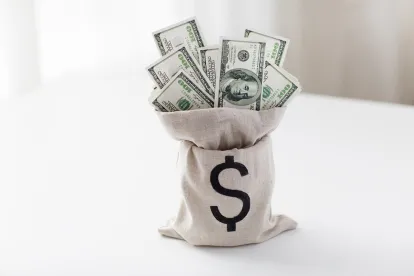On May 13, 2020, the U.S. Department of Treasury (Treasury) and U.S. Small Business Administration (SBA) issued an updated Frequently Asked Questions fact sheet (FAQ)[1], which provides interpretative guidance on the Paycheck Protection Program (PPP), as enacted under the Coronavirus Aid, Relief, and Economic Security Act (CARES Act).[2]
As background, prior SBA guidance provided that a business that applied for a PPP loan before April 24, 2020 and repays the loan in full by May 14, 2020 will be deemed by the SBA to have made the required “economic uncertainty” certification (i.e., a certification that the “[c]urrent economic uncertainty makes this [PPP] loan request necessary to support the ongoing operations of the [a]pplicant”) in good faith notwithstanding that such certification may have been untrue or inaccurate at the time it was made, thus exonerating such business from liability. At the time in which the SBA set the safe harbor provision for May 14 they indicated that additional guidance on how it will review the “economic uncertainty” certification will be forthcoming. Further, the Treasury and SBA indicated in a Joint Statement that the SBA will “review” all PPP loans in excess of $2 million, “in addition to other loans as appropriate,” following the borrower’s submission of its loan forgiveness application upon the conclusion of the covered 8-week forgiveness period.[3]
The updated FAQ adds Question #46, which details how the SBA will review the “economic uncertainty” certification made by PPP borrowers, and what courses of action the SBA may take if they determine that a PPP borrower did not make such certification in good faith. With respect to PPP loans with an original principal amount of less than $2 million, the SBA states that any PPP borrower that, along with its affiliates[4], received PPP loans with an original principal amount of less than $2 million will be deemed to have made the required “economic uncertainty” certification in good faith.[5] The SBA has determined that this safe harbor is “appropriate because borrowers with loans below this threshold are generally less likely to have had access to adequate sources of liquidity in the current economic environment than borrowers that obtained larger loans.” The SBA also explained that the safe harbor will “promote economic certainty as PPP borrowers with more limited resources endeavor to retain and rehire employees”.
With respect to PPP borrowers who applied for and received loans in an original principal amount of $2 million or greater, the SBA notes that such PPP borrowers may still have “an adequate basis for making the required good-faith certification, based on their individual circumstances in light of the language of the certification and SBA guidance.” If the SBA determines in the course of its review that a borrower “lacked an adequate basis for the required certification concerning the necessity of the [PPP] loan request,” the SBA will “seek repayment of the outstanding PPP loan balance and will inform the lender that the borrower is not eligible for loan forgiveness.” If the borrower repays the PPP loan after receiving notification from SBA[6], the SBA “will not pursue administrative enforcement or referrals to other agencies based on its determination with respect to the certification concerning necessity of the [PPP] loan request.” The updated FAQ adds that the SBA’s determination concerning the “economic uncertainty” certification will not affect the SBA’s loan guarantee.
It is important to highlight that Question 46 only addresses remedies to be taken by the SBA in connection with the “economic uncertainty” certification. The SBA can otherwise audit and review PPP loans to ensure borrowers are utilizing such loans for authorized purposes and take enforcement actions as it deems necessary. For an analysis on the limitations on use of PPP proceeds and enforcements of unauthorized uses, please visit our article on the subject matter.
*Things are changing quickly and the measures and interpretations described here may change. Our analysis is necessarily limited by the time sensitivities of the current crisis as well as the absence of precedent for some of what is contained here. This analysis represents our best interpretation and recommendations based on where things currently stand.*
FOOTNOTES
[1] The FAQ does not carry the force and effect of law independent of the CARES Act and regulations on which it is based.
[2] The FAQ is supplemental to the (i) First Interim Final Rule issued by the SBA on April 2, 2020, (ii) Second Interim Final Rule issued by the SBA on April 3, 2020, (iii) Third Interim Final Rule issued by the SBA on April 14, 2020, (iv) Fourth Interim Finale Rule issued by the SBA on April 24, 2020; (v) Fifth Interim Final Rule issued by the SBA on April 27, 2020; (vi) Sixth Interim Final Rule issued by the SBA on April 28, 2020; (vii) Seventh Interim Final Rule issued by the SBA on April 30, 2020; and (viii) Eighth Interim Final Rule issued by the SBA on May 5, 2020.
[3] For further analysis on the “economic uncertainty” certification and the corresponding SBA guidance issued prior to the date hereof, please our articles on the subject matter here and here.
[4] The updated FAQ includes a footnote stating that “For purposes of this safe harbor, a borrower must include its affiliates to the extent required under the interim final rule on affiliates.” For an analysis of the affiliation rules applicable to the PPP, please visit our article on the subject matter.
[5] By expressly referring to the “original” principal amount, the SBA seems to be signaling that PPP borrowers who originally borrowed more than $2 million may not later use the device of partially prepaying their loans, reducing their loan amount below $2 million, in order to qualify for the safe harbor.
[6] The updated FAQ does not offer a time limit for repayment following notification.



 />i
/>i

